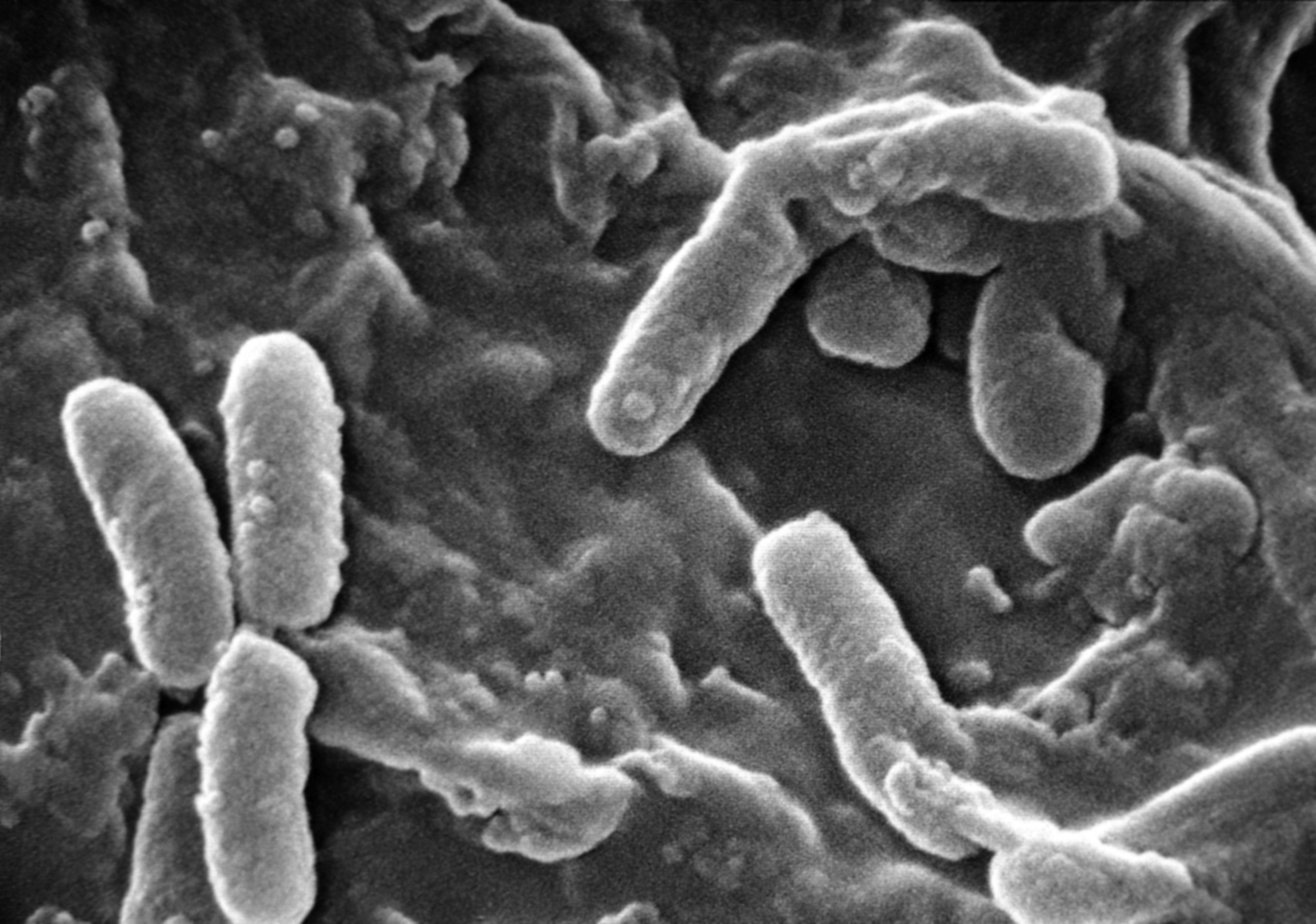Pseudomonas infection
Editor-In-Chief: Prab R Tumpati, MD
Obesity, Sleep & Internal medicine
Founder, WikiMD Wellnesspedia &
W8MD medical weight loss NYC and sleep center NYC
| Pseudomonas infection | |
|---|---|

| |
| Synonyms | N/A |
| Pronounce | N/A |
| Specialty | N/A |
| Symptoms | Fever, chills, fatigue, muscle pain, joint pain, cough, shortness of breath, skin rash, ear pain, eye pain |
| Complications | Sepsis, pneumonia, urinary tract infection, endocarditis, osteomyelitis |
| Onset | Varies depending on the site of infection |
| Duration | Can be acute or chronic |
| Types | N/A |
| Causes | Pseudomonas aeruginosa |
| Risks | Immunocompromised, hospitalization, cystic fibrosis, burns, catheter use |
| Diagnosis | Culture, PCR, imaging studies |
| Differential diagnosis | Staphylococcal infection, Klebsiella infection, Escherichia coli infection |
| Prevention | Hand hygiene, sterilization, antibiotic stewardship |
| Treatment | Antibiotics (e.g., piperacillin/tazobactam, ciprofloxacin, ceftazidime) |
| Medication | Antibiotics |
| Prognosis | Varies; can be severe in immunocompromised individuals |
| Frequency | Common in hospital-acquired infections |
| Deaths | N/A |
Pseudomonas Infection is a type of bacterial infection caused by the Pseudomonas aeruginosa bacterium. This bacterium is commonly found in the environment, such as in soil and water, but can also be found on the skin of some healthy individuals.
Causes and Risk Factors[edit | edit source]
Pseudomonas infections are caused by exposure to the Pseudomonas aeruginosa bacterium. This bacterium is opportunistic, meaning it typically only causes infections in individuals with weakened immune systems or those with wounds or burns that provide an entry point for the bacteria. Risk factors for Pseudomonas infections include hospitalization, especially in intensive care units, use of invasive devices such as catheters or ventilators, and underlying health conditions such as cystic fibrosis or HIV/AIDS.
Symptoms[edit | edit source]
The symptoms of a Pseudomonas infection can vary greatly depending on the area of the body that is infected. Common symptoms can include fever, chills, fatigue, and a general feeling of illness. If the infection is in the lungs, symptoms can include cough, shortness of breath, and chest pain. If the infection is in the skin, symptoms can include redness, swelling, and pain at the site of the infection.
Diagnosis[edit | edit source]
Diagnosis of a Pseudomonas infection typically involves taking a sample of body fluid or tissue and sending it to a laboratory for testing. The laboratory will attempt to grow the bacteria from the sample, a process known as culture, to confirm the presence of Pseudomonas aeruginosa.
Treatment[edit | edit source]
Treatment for Pseudomonas infections typically involves antibiotics. However, Pseudomonas aeruginosa is known for its resistance to many commonly used antibiotics, making treatment more difficult. In some cases, a combination of antibiotics may be used to effectively treat the infection.
Prevention[edit | edit source]
Prevention of Pseudomonas infections involves good hygiene practices, such as regular hand washing, especially in healthcare settings. In hospitals, proper cleaning and sterilization of equipment, as well as the use of infection control measures, can help prevent the spread of Pseudomonas aeruginosa.
This article is a infectious disease stub. You can help WikiMD by expanding it!
Search WikiMD
Ad.Tired of being Overweight? Try W8MD's physician weight loss program.
Semaglutide (Ozempic / Wegovy and Tirzepatide (Mounjaro / Zepbound) available.
Advertise on WikiMD
|
WikiMD's Wellness Encyclopedia |
| Let Food Be Thy Medicine Medicine Thy Food - Hippocrates |
Translate this page: - East Asian
中文,
日本,
한국어,
South Asian
हिन्दी,
தமிழ்,
తెలుగు,
Urdu,
ಕನ್ನಡ,
Southeast Asian
Indonesian,
Vietnamese,
Thai,
မြန်မာဘာသာ,
বাংলা
European
español,
Deutsch,
français,
Greek,
português do Brasil,
polski,
română,
русский,
Nederlands,
norsk,
svenska,
suomi,
Italian
Middle Eastern & African
عربى,
Turkish,
Persian,
Hebrew,
Afrikaans,
isiZulu,
Kiswahili,
Other
Bulgarian,
Hungarian,
Czech,
Swedish,
മലയാളം,
मराठी,
ਪੰਜਾਬੀ,
ગુજરાતી,
Portuguese,
Ukrainian
Medical Disclaimer: WikiMD is not a substitute for professional medical advice. The information on WikiMD is provided as an information resource only, may be incorrect, outdated or misleading, and is not to be used or relied on for any diagnostic or treatment purposes. Please consult your health care provider before making any healthcare decisions or for guidance about a specific medical condition. WikiMD expressly disclaims responsibility, and shall have no liability, for any damages, loss, injury, or liability whatsoever suffered as a result of your reliance on the information contained in this site. By visiting this site you agree to the foregoing terms and conditions, which may from time to time be changed or supplemented by WikiMD. If you do not agree to the foregoing terms and conditions, you should not enter or use this site. See full disclaimer.
Credits:Most images are courtesy of Wikimedia commons, and templates, categories Wikipedia, licensed under CC BY SA or similar.
Contributors: Prab R. Tumpati, MD


